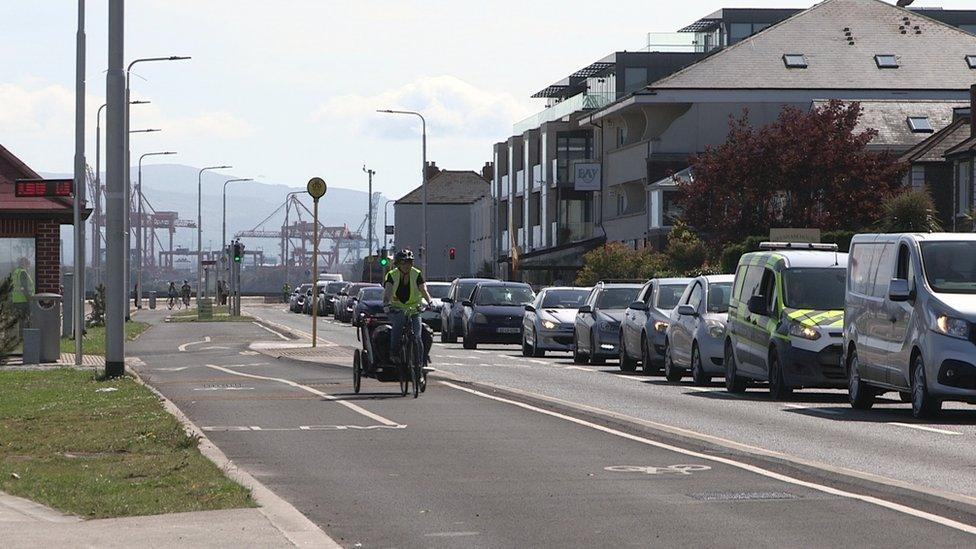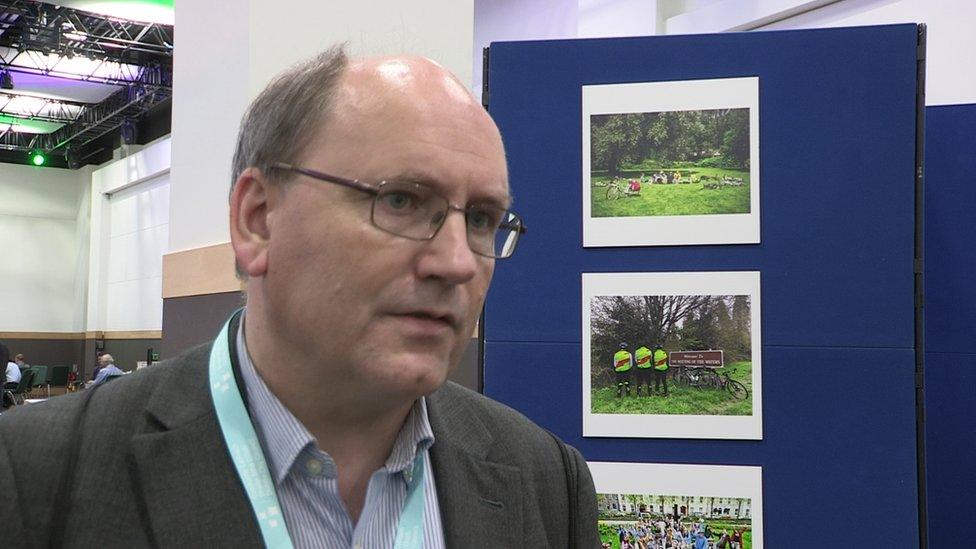Calls for more cycling resources in the Republic of Ireland
- Published

A cyclist travels past traffic in Dublin
There have been calls in the Republic of Ireland for more resources to be given to cycling.
It is hoped it will help combat global warming and rising obesity levels.
The calls were made at the Velo City conference in Dublin, organised by the European Cycling Federation.
During Dublin's busy rush hour you can see more cyclists among the buses and cars - partly because of the Dublin Bike sharing scheme and partly because of growing fears about climate change.
Brendan O'Brien, a cyclist from Dublin City Council, which has plans to greatly add to the number of dedicated bike paths, said: "It's a clean, healthy way of moving around the city.
"It's fast and reliable and Dublin is a good cycling city because of its lack of hills and it's a cheap way of transportation."

Brendan O'Brien regularly cycles to work
Dublin's Convention Centre, by the banks of the Liffey, recently hosted cyclists from all over Europe keen to advocate their preferred mode of transport.
The Netherlands - largely flat and densely populated - has a long cycling tradition across all generations with dedicated or segregated cycling paths.
Canadian-born Chris Bruntlett, from the Dutch Cycling Embassy, said that nearly half of all trips there are made by bike.
"A lot of the loudest noises you will hear are the church bells and the birds rather than the revving of engines," he said.
"That has all kinds of implications for the quality of life, mobility, health and happiness."
Unlike in the Netherlands, cyclists in Ireland - north and south - often complain about the lack of dedicated bike paths and about the dangers of having to share road space with much bulkier busses.
Shared space
As a response to those worries, Michael Ahearne from the Republic's National Transport Authority said there are proposals for 200 kilometres of dedicated or segregated cycle paths, some of which are currently under construction, in the city's Bus Connects plan.
"Buses and bikes won't be sharing the same space anymore," he said.
But they will "be in the same corridor".
"It will be far more comfortable for both modes of transport when you have that segregation."